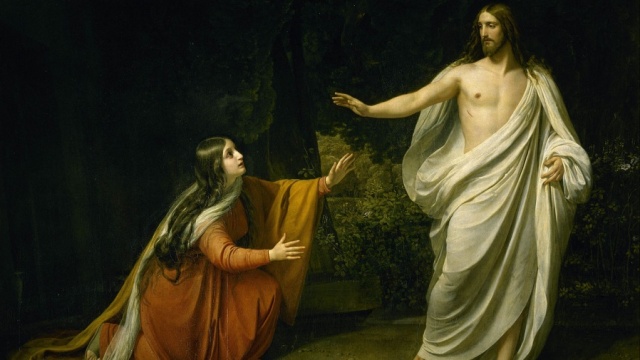Any Catholic educator–-especially those teaching in Catholic schools–-will eventually face some tough questions from students regarding the faith. How can we best answer and educate them about the Salvation Story? Here are some frequently asked questions compiled by a teacher from a Catholic school, and some suggested answers for our inquisitive young people.
1. Is God real? How do you know?
There is no hard proof that God is real or exists. However, if you observe the Earth carefully, you will know that someone superior to Man created it. Everything hangs in perfect balance – the atmosphere, the rotation of the Earth around the Sun, and all the other things which we take so much for granted. The other creation that requires close observation is the human body. Up until today, doctors are unable to fully comprehend the workings of the body; it is a deep mystery. These two creations would point to a super intelligent being as creator.
2. Why must I attend Mass? It’s boring.
The Mass is a coming together for the celebration of the Eucharist. In the Bible, Jesus taught His apostles that they must eat His flesh and drink His blood to live. “For where two or three gather in my name, there am I with them.” (Mt 18:20). You can pray alone, but the Catholic faith is a communal religion. Didn’t Jesus say that if we cannot love our neighbor whom we can see, how can we love God whom we cannot see? To help yourself enjoy the mass, it is good to be attentive and listen to the priest as he takes you through it. Try to participate in the mass by volunteering your services at the altar or through some other means to make it meaningful to you. Being involved is the fastest way to learn and understand.
3. Can I do anything I want before declaring my belief in God when I am about to die?
Your life is created by daily habitual actions. If you lead a life of wanton living, it is highly unlikely that you would think of God when you are dying. Also, the soul would be unable to face God if it were not clean.
4. Why is our God a jealous God?
This is probably an idea taken from the Old Testament where we read that our God is jealous. The best way to explain this is through our love for someone. When we love someone, our whole attention is focused on that person. God wants us to centre our attention on Him, because He alone is the way to joy, truth and peace. As such, He is ‘jealous’ in the sense that He does not want us to stray from Him, for fear of losing us forever.
5. Is it a sin to masturbate?
Sex is an expression of love between persons of the opposite sex. It is possible only between two consenting adults and if one party does not want it, it should not take place. Masturbation does not require consent from another party, and is solely intended for giving oneself pleasure. It is an act of selfishness as there is no self-control required. Anything that is selfish leads to sin.
6. Is God a man or a woman?
God is neither man nor woman (CCC370). He is pure spirit, and not bound by biological gender in the way we are. God created mankind in His image, and thus our humanness is a reflection of His holiness – not the other way around.
7. Why must we have RCCE and then catechism on Sunday again?
The purpose of a Catholic school is to offer both religious education as well as academic training. It is a praying community that purports to live as closely as it can to the Gospel. If a Catholic school does not have some religious programmes, how does it differentiate itself? It is important to be introduced to God at a younger age so that as you grow older, you can question and dig deeper to find out more about your religion to deepen your faith. This is also why attending catechism on a Sunday is required by each parish up till Confirmation. While Catholic Schools and catechists offer slightly different programmes, the intention is the same: to form useful habits to equip you for the vicissitudes of life. The Catholic population is privileged to have so many organisations within and outside of the Church to help all Catholics through various stages in life.
8. Why must I go for confession?
Confession is a Sacrament ordained by the Church to help Catholics expiate their sins. Throughout the Bible, you will read that when a sin has been committed, restitution must be made. We are to first seek out the one we have hurt and ask for forgiveness. Then, to be accepted back into the community of God (i.e. the Church), we are to confess our sins. If the sinful action is against God alone, then only confession is necessary.
9. Hell must be a fun place. I don’t mind going there.
People tend to paint a fun picture of Hell as the place where they will find many friends and have a good time. Human experience tells us this is unlikely to be the case. People need opposites to appreciate the states of their lives. For example, you will appreciate leisure only if you are extremely busy for a period of time. As a hardworking student, you will look forward to the school holidays. If your life was one of debauchery, you would not enjoy it for long. Like the prodigal son, many who indulge in unfettered hedonism eventually find themselves feeling empty and in pain. Hell is an infinite extension of this loneliness. Coupled with the company of every wicked, selfish and evil person that’s ever lived, it is a circus of fear and danger. Not so fun when you think about it, is it?


